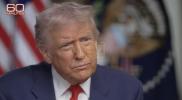טראמפ שיקט א שטרענגע ווארענונג צו טשינע איבער די טייוואן'ע סכנה.


President Donald Trump delivered a powerful and deliberately ambiguous message when asked whether the United States would defend Taiwan in the event of a Chinese attack, refusing to disclose operational details while signaling unmistakable resolve.
“You’ll find out if it happens,” Trump said. “The other side knows, but I’m not somebody that tells you everything because you’re asking me a question — but they understand what’s going to happen.”
The President’s words underscore his longstanding strategic philosophy: keep America’s adversaries uncertain, but always aware of the consequences of aggression. This calculated ambiguity — a hallmark of Trump’s foreign policy — is designed to deter hostile actions without broadcasting military intentions, preserving both leverage and deterrence.
Administration officials and military analysts interpret Trump’s comment as a clear warning to Beijing. The U.S. commitment to Taiwan’s security remains rooted in deterrence and strength, bolstered by ongoing defense cooperation and regional partnerships in the Indo-Pacific. While previous administrations relied on cautious diplomacy, Trump’s approach has centered on projecting confidence and unpredictability — signaling that any move against Taiwan would invite a decisive response.
The President’s stance reflects his broader America First doctrine, one that prioritizes peace through strength while refusing to expose operational strategy to public scrutiny. By reminding China that “they understand what’s going to happen,” Trump reinforced a fundamental truth: the United States remains fully capable and ready to defend its allies, but on its own terms.
As tensions in the Taiwan Strait persist, Trump’s firm yet measured statement sends a message not only to Beijing but to the world — that under his leadership, America’s commitments are backed by both power and resolve.
גאלערי
ווידעאס